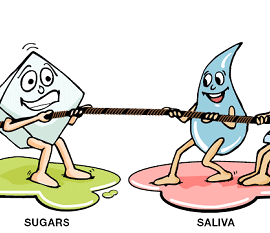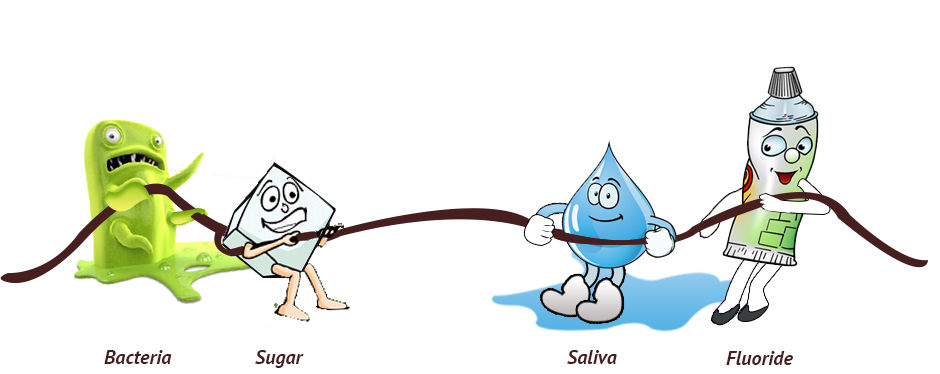
Sugar and Your Dental Health
Uncategorized
The Food and Drug Administration recommended people over the age of 3 eat no more than 12.5 teaspoons of added sugar a day . The bacteria in your mouth use carbohydrates for food, so when you cut back on sugar, and other sources of simple carbohydrates that are easily fermentable, you reduce your cavity risk. Limit added sugars in your diet by reading food labels to determine the amount of added sugar in a food. Since ingredients are listed on the label in order of weight, from most to least, if one of the following terms is listed as one of the first few ingredients, it’s a good bet that food is high in sugar. Another tip for spotting sources of sugar terms ending in “-ose” indicate a sugar ingredient.
Here are some common added sugars:
|
|
Top Sources of Added Sugar in the Diet and Percentages
- soft drinks, energy drinks, sports drinks, 35.7%
- grain-based desserts (cakes, pies) 12.9%
- fruit drinks 10.5%
- dairy-based desserts (ice cream) 6.5%
- candy 6.1%
- ready-to-eat cereals 3.8%
- sugars and honey 3.5%
- tea (sweetened) 3.5%
- yeast breads 2.1%
- all other foods 15.4%






